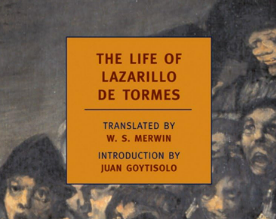Chapter I: Where Lazaro Tells about How He Left Toledo to Go to the War of Algiers
byChapter I: Where Lazaro Tells about How He Left Toledo to Go to the War of Algiers opens with Lazaro in an enviable position. In Toledo, he had a job that brought stability, fine clothes, and the appearance of respectability. Yet the call of adventure stirred something deeper in him—a wish to follow the legacy of his father and prove his worth in a more daring way. That desire, mixed with ambition, pushed him to volunteer for the fleet bound for Algiers. Before setting off, he ensured his family was cared for, placing his wife and daughter under the watch of the archpriest. He felt confident they would be protected, never suspecting how quickly fate could shift. What began as a bold step toward glory slowly unfolded into a journey shaped not by triumph, but by mischance and disillusionment.
As Lazaro made his way toward Cartagena, his thoughts were filled with visions of war and honor. But that path detoured sharply in Murcia, where he stopped at an inn and was startled to see a figure from his past—the once-proud squire he had served in Toledo. The man was barely recognizable, cloaked in shabby garments and worn by life. Time had not been kind to him. The squire, clearly broken, shared a tale soaked in humiliation. A woman, covered in a veil and grief, had convinced him to accompany her to Madrid in pursuit of justice against a man who had ruined her. Moved by chivalry, he agreed, only to be left behind as she joined a troop of soldiers, laughing as she vanished into the crowd. He had been played for a fool, and it cost him everything.
The contrast between past and present was stark, both for the squire and for Lazaro himself. They once lived under roles assigned by others—servant and master—yet now those roles meant little. They were just two men worn down by choices, by fortune, and by others’ deceit. Lazaro listened not with scorn, but with recognition. He saw in the squire’s downfall a mirror of what could happen to any man who trusted appearances too much. And as he continued his journey, he no longer carried only dreams of battle and glory. He carried the weight of what he had seen—how quickly status could dissolve, and how foolish ambition could be when tied too tightly to pride.
Despite the encounter, Lazaro pressed on, still driven by the hope that service in Algiers might bring him something greater than Toledo ever could. The fleet symbolized escape as much as it did duty. Yet his mind replayed the meeting at the inn, warning him that valor, like fortune, is often a disguise. He had left behind a life of modest comfort not out of necessity, but from longing. Whether that longing would lead to growth or ruin was still unknown. What he did know, however, was that the world was not just a place of struggle, but of surprises—sometimes cruel, sometimes comic, but always relentless.
Through Lazaro’s eyes, the story blends humor with tragedy, exposing the absurd balance between survival and honor. He doesn’t condemn the squire for his gullibility, just as he doesn’t praise himself for moving forward. Each man walks with his burden—one of regret, the other of uncertain hope. This chapter doesn’t mark a high point or a low, but rather a turning. A place where stories of the past clash with the illusions of the future, reminding readers that in Lazaro’s world, identity is a costume, and fate never keeps a promise. With that, he moves forward, not as a hero, but as a man simply trying to make sense of where he is going—armed with nothing but experience and the will to endure.

